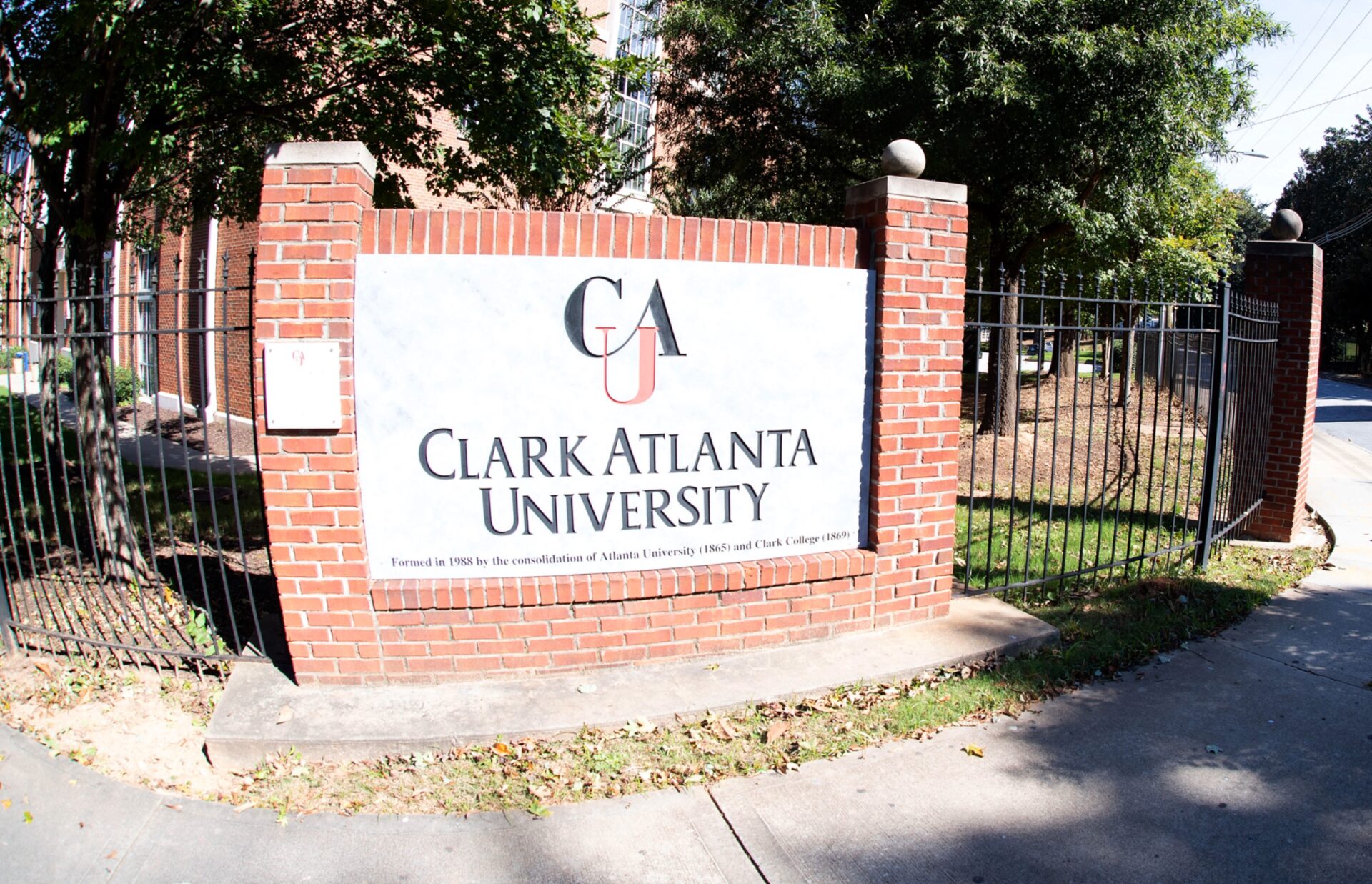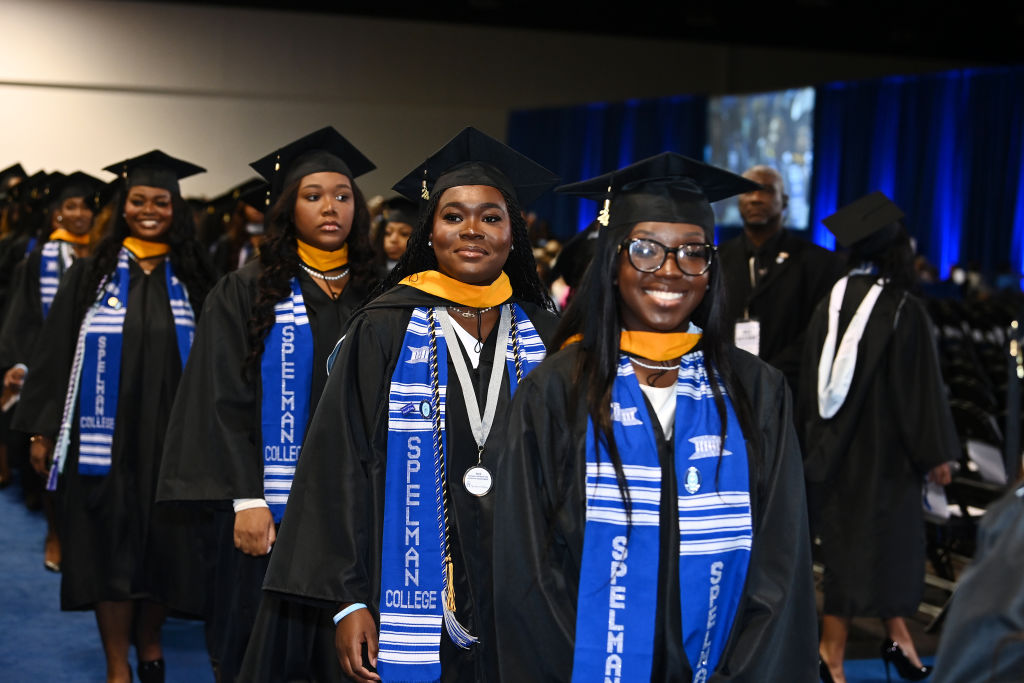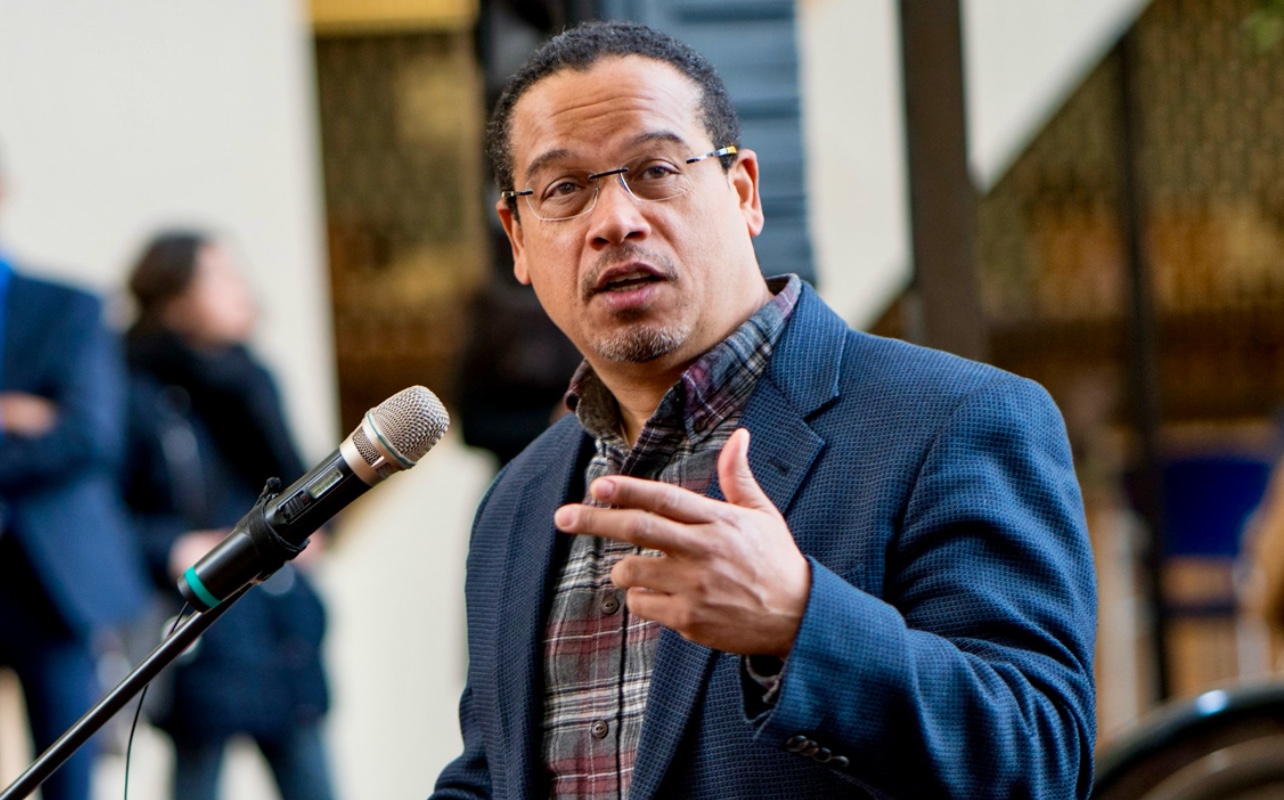
May 21, 2024
Grandmother Graduates From Clark Atlanta 32 Years After Leaving High School
Ebony Chappel has defied the odds by graduating from college over 30 years after she left high school to work full time.
Ebony Chappel has defied the odds by graduating from college over 30 years after she left high school to work full time.
The 48-year-old matriarch with three children and six grandchildren isn’t like most students in her graduating class. But thanks to her desire to fulfill a dream she set for herself 30 years ago, Chappel pushed herself to attend college and obtain a degree that furthers her entrepreneurial endeavors.
She told WABE that films like “School Daze” and shows like “A Different World” helped introduce her to college life.
“I wanted to go to that exact school. Not knowing that they were a made-up school,” Chappel said of her desire to attend one of the fictionary colleges in the film and shows she watched on television.
Once she learned the fictional colleges were designed after Clark Atlanta University, Chappel was set on attending the historically Black college or university (HBCU). She initially had aspirations of becoming a teacher and studying education in college. However, she became a young mother at 17 and left school to work full-time and support her family. She wouldn’t obtain her General Educational Development (GED) until 2019, 27 years after dropping out of high school.
“I was a young mother. I’ve been an entrepreneur all my life,” Chappel explained. “I actually dropped out of school at 17 in the 11th grade to work.”
She did try to attend beauty school, but work took over as she needed money to provide for her family. Chappel maintained a goal of returning to school to obtain her college degree and hoped to do so before her children graduated college.
“I said, ‘I can’t keep telling them, and I haven’t done it,'” Chappel recalls telling herself.
However, Chappel kept pushing back her dream to return to school to work and care for her family. When her youngest child was preparing to graduate high school and embark on college, her daughter’s college advisor helped Chappel get the boost she needed to obtain her GED.
Five years after overcoming challenges to earn her GED “earlier than expected,” she’s fulfilled a dream by attending her dream college and graduating with a bachelor’s in fashion design.
It comes after decades of practicing her design skills by making clothes for herself and her children. Chappel didn’t even think attending an HBCU with a GED was up her alley.
A television commercial on BET inspired her to apply to Clark Atlanta for a fashion degree. Just two weeks after applying, she received an acceptance letter from the school. She joins CAU’s graduating class of 2024.
When it comes to advice for anyone struggling with the idea of going back to school, Chappel stresses the importance of moving past any doubts or fears.
“I am a living witness that it’s not too late,” she says. “I will be 49 in September and I’ll be starting my masters.”
Chappel continued. “Never stop dreaming. Never stop believing. Even though time has come and gone, as long as you’re still here, there’s still time for you to do what you would like to do.”








